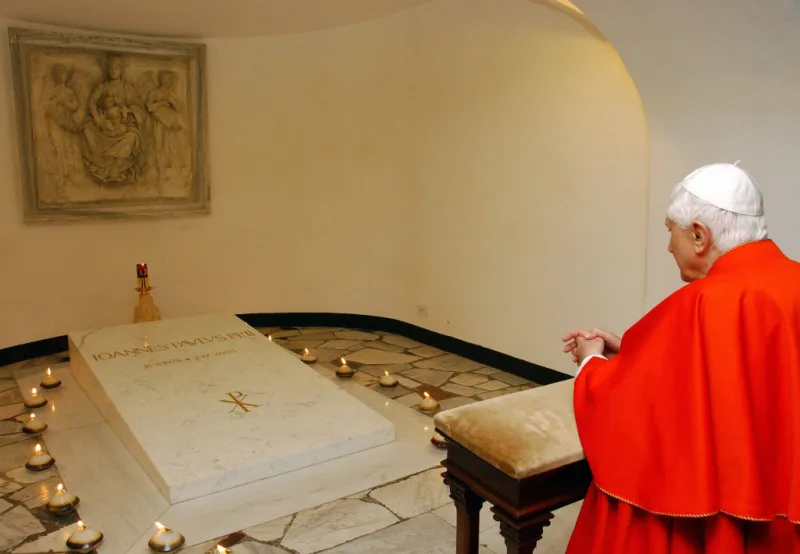
St. Louis, Mo., Dec 17, 2022 / 09:00 am (CNA).
This Saturday, Dec. 17, is a special day in the Catholic Church, though relatively few Catholics probably realize it. Saturday is an ember day, a day traditionally set aside for fasting and abstinence from meat. And in fact, it’s the last ember day of 2022.
But what are ember days, and why do they exist?
Ember days are tied to the four seasons of the year. The reason “ember” is associated with these days seems to be that the word is a corruption of the Latin phrase “quatuor tempora,” meaning four seasons.
Each of the four seasons of the year contains three ember days. The 12 total ember days throughout the year are:
- The Wednesday, Friday, and Saturday after Ash Wednesday
- The Wednesday, Friday, and Saturday after Pentecost
- The Wednesday, Friday, and Saturday after the Feast of the Exaltation of the Holy Cross (Sept. 14)
- The Wednesday, Friday, and Saturday after the feast of St. Lucy, which is Dec. 13
Ember days appear to be a very early Christian practice, first attested to as part of apostolic tradition by Pope Leo I in the fifth century. The purpose of their introduction, according to The Catholic Encyclopedia, was to thank God for the gifts of nature (hence their tie to the natural seasons), especially the crops used to make bread and wine for the Eucharist; to teach people to make use of those gifts in moderation; and to assist the needy.
Ember days also served as a response to the pagan festivals of Rome; the days encouraged Christians to counter the excesses and debauchery of those festivals by, instead, fasting and praying. At first the Church in Rome had fasts in June, September, and December, but the exact days were not fixed. The first record of the fasts for all four seasons being decreed comes in the writing of Pope Gelasius at the end of the fifth century.
After Gelasius, the practice spread beyond Rome. Gelasius also started the practice of permitting the conferring of ordinations on ember Saturdays, which were formerly given only at Easter, The Catholic Encyclopedia records. That tradition of holding ordinations of ember Saturdays also continues today, and in addition, ember days have traditionally been days of prayer for vocations.
The observance of ember days was later prescribed for the entire Latin Church by Pope Gregory VII (1073–1085). So, ember days were a big part of Catholic life for quite a while.
Though canon law no longer requires the observance of fasting and abstinence on ember days, they remain important for Catholics in many countries, and their continued observance by Catholics everywhere is certainly not discouraged. And in fact, some bishops in the United States have explicitly encouraged their Catholics to observe ember days and pray for specific intentions.
Ember days are a fascinating and ancient tradition of the Catholic Church that has been largely forgotten, at least in the United States. Though certainly not required, consider observing the last ember day of the year today, thanking God for nature and for the gifts it brings.
If you value the news and views Catholic World Report provides, please consider donating to support our efforts. Your contribution will help us continue to make CWR available to all readers worldwide for free, without a subscription. Thank you for your generosity!
Click here for more information on donating to CWR. Click here to sign up for our newsletter.





Leave a Reply